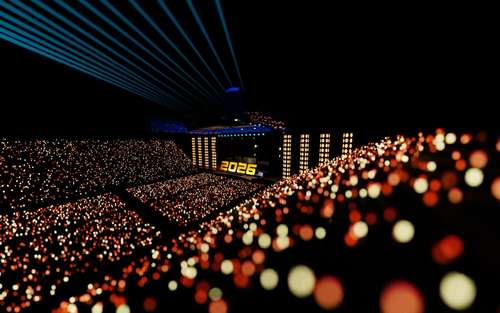The Israel-Hamas conflict has ignited global debates, stirring deep divisions and complex emotions.
Yet, amid the clamor of opinions, one striking resonance remains largely unheard of in Hollywood's voice.
This article delves into the impact of the Israel-Hamas conflict on Hollywood, explicitly highlighting the issue of antisemitism and the divisions it has caused within the industry. It points out the surprising silence of some individuals who have previously been vocal about supporting various causes and ideologies.
In the corridors of Tinseltown, where causes are championed and ideologies are celebrated, an unexpected silence has enveloped the discourse surrounding the Israel-Hamas conflict. This marked quietness within an industry known for amplifying social causes and promoting liberal values begs examination.
At the heart of this hushed response lies the issue of antisemitism. A thorny concern intricately woven into the fabric of the conflict.
Hollywood, a historic sanctuary for Jewish immigrants who shaped the film industry's very foundation, finds itself entangled in the complexities of this sensitive topic.
Hollywood has been a vibrant tapestry of diverse voices for decades, fostering an environment where individuals often lend their celebrity status to advocate for human rights, social justice, and humanitarian causes.
However, the ongoing Israel-Hamas conflict has cast a curious shadow over this tradition. Despite the industry's history of supporting various causes and ideologies, the Israel-Hamas conflict has evoked an uncharacteristic reluctance among some of its influential figures. This surprising silence contrasts sharply with the industry's vocal stands on numerous global issues in the past.
The subtle and layered nature of the conflict might be one explanation for this noticeable silence. It's a multidimensional struggle rooted in historical, political, and religious narratives, defying easy categorization or swift resolution.

Hollywood's hesitation might stem from the complexity and exquisiteness of the situation, recognizing the intricacies that require a cautious and informed approach.
Moreover, the fear of being implicated in fueling antisemitic sentiments or inadvertently taking sides in an uncontrollable conflict might have led to this industry's reluctance. In a digital era where statements can trigger immediate and far-reaching repercussions, celebrities and industry figures might tread cautiously to avoid unintentionally worsening the situation.
Despite this pervasive silence, a few voices within Hollywood have dared to speak out, advocating for peace, dialogue, and humanitarian aid for affected regions.
Their bravery in navigating the precarious balance between expressing opinions and avoiding unintended consequences deserves acknowledgement.
The absence of a unified stance from Hollywood's luminaries, however, has left observers puzzled and questioning the industry's perspective on a matter as crucial and sensitive as antisemitism amid the Israel-Hamas conflict.
This silence shouldn't be hastily interpreted as indifference or apathy. Instead, it might signify a more profound acknowledgement of the complexities at play and a recognition that oversimplification or hasty judgments could do more harm than good in such a deeply entrenched conflict.
As the Israel-Hamas conflict persists, Hollywood's unapproachable perspective will likely remain a subject of scrutiny. The industry's role in addressing the nuances of this conflict while navigating the complexities of antisemitism demands a cautious and thoughtful approach—one that upholds the values of justice, peace, and empathy without inadvertently stoking the flames of discord.
In conclusion, the Israel-Hamas conflict has presented an enigmatic challenge to the Hollywood tradition of vocal activism.
The industry's unwillingness and divided response on the issue of antisemitism amid this conflict underscores the intricacies involved, necessitating thoughtful and nuanced engagement rather than rushed or simplistic statements.
While the echoes of silence reverberate in Tinseltown, the pressing remains for Hollywood to navigate this sensitive landscape with wisdom, empathy, and a commitment to promoting understanding and peace amidst complexities that transcend mere rhetoric or polarized perspectives.




